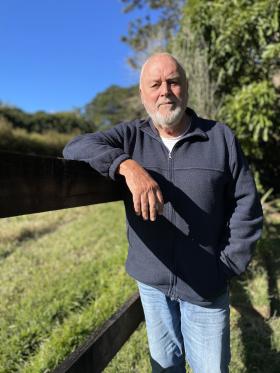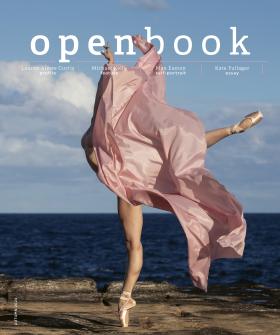
Like the first love, the sadistic school teacher is a memoirist’s cliché. Be that as it may, my sole worry in life aged seven was the sarcastic and crimson-faced Miss Doris Langridge, who appeared always on the edge of violence and, from the moment I entered her class, seemed to detest me.
She disliked people from the eastern states anyway. That my Melbourne mother insisted on sending me to school wearing shoes completed my sins. In Dalkeith’s gravel playground back then (a far cry from today) bare feet for boys was the norm. ‘Covered feet’, as Miss Langridge referred to them, were an affectation, an instant giveaway for wet English kids or sooky Melbourne mothers’ boys.
Miss Langridge attempted to mask the bitter-plum redness of her face with overlapping layers of powder that subdued her colour to pink. Her bad posture meant she could thrust her face down to a child’s level. On my arrival in her class, she eyed me up and down, then bent down and spat, ‘Does your mother think her little darling will get a cold in the tootsies?’
The force of the word tootsies dislodged tiny clumps of powder from her cheeks and they floated in the air between us.
Looked at decades later, her nastiness reveals as much self-loathing as a dislike of seven-year-old boys, and of me in particular. As her 15-inch ruler displaying sample squares of Major West Australian Timbers whacked my knuckles once more, this time for not sitting up straight, she yelled, ‘You’re slumping, Robert Drewe! You mustn’t slump!’
And then, surprisingly, she hissed, ‘Do you want to end up looking like me?’
Looking like Miss Langridge! What a confusing nightmare image!
After school every Wednesday we had ‘library’, held by a couple of volunteer mothers in a detached asbestos building on the far side of the playground. As an early and avid reader I lingered there. You could only borrow two books at a time so I’d quickly choose the ones I wanted — maybe a Famous Five and Just William or Doctor Doolittle and a Secret Seven — and then spend the next hour perusing others. I was usually the last to leave, as I was on one particular afternoon. I’d over-stayed until the library closed. I would be late home, and in trouble.
There was a rule forbidding riding your bike on school grounds in case you struck someone. Although there were no recorded cases of this happening, it seemed sensible enough. But with no students left at this late hour, I hopped on the back of my bike (or rather, my trike — it was actually a more harmless tricycle) and, with my schoolbag and library bag on my shoulder, scootered the last three or four metres off the deserted playground.
Just as Miss Langridge drove past.
She leaned out of her Austin A40, shaking her fist and shouting, ‘You’re going to be caned tomorrow, Robert Drewe!’ There seemed to be relish in her vehemence. Then passed a fitful night. I’m not sure I told my parents. Perhaps I knew there would be no sympathy for a child’s position versus that of officialdom. Maybe they said I had to face the music. (Mother: ‘That’s a shame dear.’ Father: ‘Rules are there to be obeyed, son.’)
At assembly next morning Miss Langridge informed the whole school of the heinous after-library crime that had been committed, and of the punishment the perpetrator — a seven-year-old book-borrower on a tricycle on the edge of an empty playground — would face as an example to everyone.
She wasn’t done yet. Punishment shouldn’t be limited to a caning. She kept up the suspense with her equivalent of medieval stocks. She made me sit cross-legged under the school clock for the duration of morning recess while everyone stared, laughed and pointed at the villain.
Lunchtime eventually came but my sandwiches stuck in my throat. After 20 hours of anxiety since the committal of the crime, Miss Langridge led me into the craft room for my punishment. On the threshold she passed me over to the principal, Miss Holland, a woman of similar middle age and shape.
‘Here he is!’ she announced.
The light glinted on Miss Holland’s rimless glasses. My head swam as she closed the craft-room door behind us. I was dizzy with the smell of the hessian squares intended for Mothers’ Day potholders and the cold metal bin of modelling clay.
‘Hold out your hands.’ Then I was caned by Miss Holland, on my right palm, and on my left.
I’ve had a low threshold for senseless rules and institutional injustice ever since. Maybe Miss Langridge is partly responsible for my view of the world. The powerless and misunderstood individual strikes a loud chord.
Maybe being caned for losing myself in books lent a defiant aspect to my character, and led to my embracing books, defending them against their competition and, eventually, to writing them as well.
Robert Drewe’s novel Nimblefoot is published by Hamish Hamilton.
This story appears in Openbook spring 2022.




